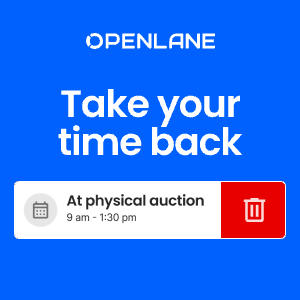I hope everyone is doing well and enjoying this beautiful West Virginia spring. While spring normally brings increased customer traffic, increased interest rates and the uncertainty of tariffs are causing unpredictability in our markets. Despite these challenges, there is good news to report. The industry has fought back the Federal Trade Commission’s Vehicle Shopping Rule administrative regulations, and there is a good chance that the current administration will not seek to revive this extremely misguided administrative rule, which would have dramatically and negatively changed the vehicle shopping experience for millions of customers.
On the other hand, please be aware that states are developing their own versions of the Vehicle Shopping Rule, currently California and Massachusetts. Furthermore, the Federal Trade Commission has been attempting to impose the Vehicle Shopping Rule’s requirements and mandates through consent orders even though the administrative rule has been rejected by the federal courts.
Congratulations to the West Virginia Dealers Association for their legislative success this year! No negative legislation was passed. On the positive side, the Department of Motor Vehicles passed legislation clarifying the path forward on electronic titling, which will greatly assist your internal operations and assist the consumers with a more efficient means of ownership transfer with the safe operating confides of the Department of Motor Vehicles system. West Virginia has been a leader on electronic titling — kudos and thanks to both the West Virginia Department of Motor Vehicles and the West Virginia Automobile Dealer Association.
Just three things I wish to mention, and hopefully, you will evaluate your internal compliance processes to lessen your legal exposure. I have seen issues arising over the recent hailstorms that impacted West Virginia, increased legal complaints about voluntary protection products, and questions about how to handle the increased number of vehicles with recalls.
Hail Damage
Can we sell a motor vehicle that has received hail damage? What are our disclosure requirements? The short answer is yes, you can, but let’s use a compliant disclosure.
Over 15 years ago, I prepared and provided the association with a Hailstorm Damage Disclosure and Release. If you have misplaced your disclosure, please contact me or the association and we will be happy to provide another copy.
I encourage all dealers to disclose as much information as possible to the consumer, disclosing the areas of the motor vehicle that were damaged, and perhaps including a report prepared by the vendor who inspected the particular motor vehicle, along with any photos you may have.
The disclosure form expressly allows the consumer to select whether they will accept the vehicle with or without repair, and what discount they will receive, or whether they select to receive the insurance company’s payment for the hail damage.
Finally, there is language releasing the dealer from any liability because of hail damage based upon your disclosure of this information. This clearly allows a consumer to make an informed decision and protects the dealer from legal liability.
Voluntary Protection Products Disclosures
We continue to face complaints in which a consumer alleges that they were not informed that they purchased a particular voluntary protection product, that they were required to purchase a voluntary protection product, or that the product was “worthless” and therefore, “unconscionable,” under our consumer laws. Your written disclosure documentation becomes so important to defend yourself. If you are using a menu selling system, screenshots can be printed, and the customer initializes those items that they wish to purchase. We should have systems and training in place in which any voluntary protection product is clearly disclosed on the bill of sale and the retail installment contract. I discourage preloading voluntary protection products on a bill of sale. There should also be a separate document within the retail file specifically disclosing the voluntary protection product, its terms and conditions, pricing and language reflecting that the purchase of the product is not required to obtain credit.
We certainly wish every customer to have an excellent buying experience and do not wish them to go away from the dealership thinking that they purchased something that they were unaware of or were somehow misled. It is so important to have proper signatures and proper disclosure procedures in place.
As stated above, although we do not have to face the express legal requirements of the now-rejected Vehicle Shopping Rule, this will not stop consumers and their attorneys from alleging fraud and violations of the West Virginia Consumer Credit and Protection Act. Also, we always have to be concerned about the Federal Trade Commission and its extremely burdensome and heavy-handed consent orders.
Recalls
Recalls are becoming more and more common in the automotive industry. I wish to reiterate and emphasize our responsibility as it relates to the sale of new and used motor vehicles with an open recall.
A new car may not be sold with an open recall. While this can create expense as it sits on your floor plan, there is federal law that allows a dealer to recover the floor plan interest on the motor vehicle due to an open recall that the manufacturer simply cannot resolve or provide the needed part.
There is no prohibition on selling a used car with an open recall. However, I encourage sound judgment and common sense to be used in this situation. If the used car is one of the same line make of new motor vehicles that you sell, then strong consideration has to be given to not selling that used motor vehicle until the recall is completed. However, every recall is not the same. Some relate to simple items, and others are much more safety-sensitive. Recalls that relate to safety-sensitive issues should not be sold if they endanger any consumer or the public.
When we have used cars that are not of the line-make for which we hold our sales and service agreement, these can become more difficult. Fortunately, there are governmental websites that clearly show if a vehicle has an open recall. Again, judgment must be used. If the recall is a safety-sensitive issue, then we need to exercise caution and err on the side of not selling. Otherwise, pre-owned motor vehicles with a minor recall issue can be sold, but I would encourage it to be done with a proper disclosure form.
The West Virginia Dealer’s Association does have a disclosure form for selling a used car with an open recall, and if you have not previously received it, do not hesitate to contact the association or me, and we will provide it to you.
I cannot stress the importance of a robust compliance training program, with written policies and procedures and consistent training and reinforcement of your compliance procedures. As always, the association and I are able to assist your efforts on these types of programs. Please reach out if any guidance is needed or if questions arise. Hope to see everyone at the WVADA Dealer Family Convention.








